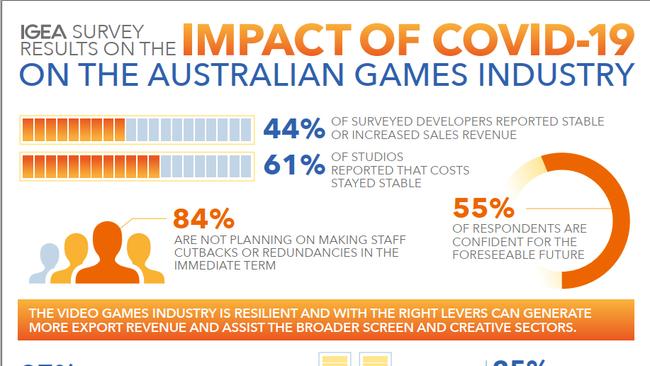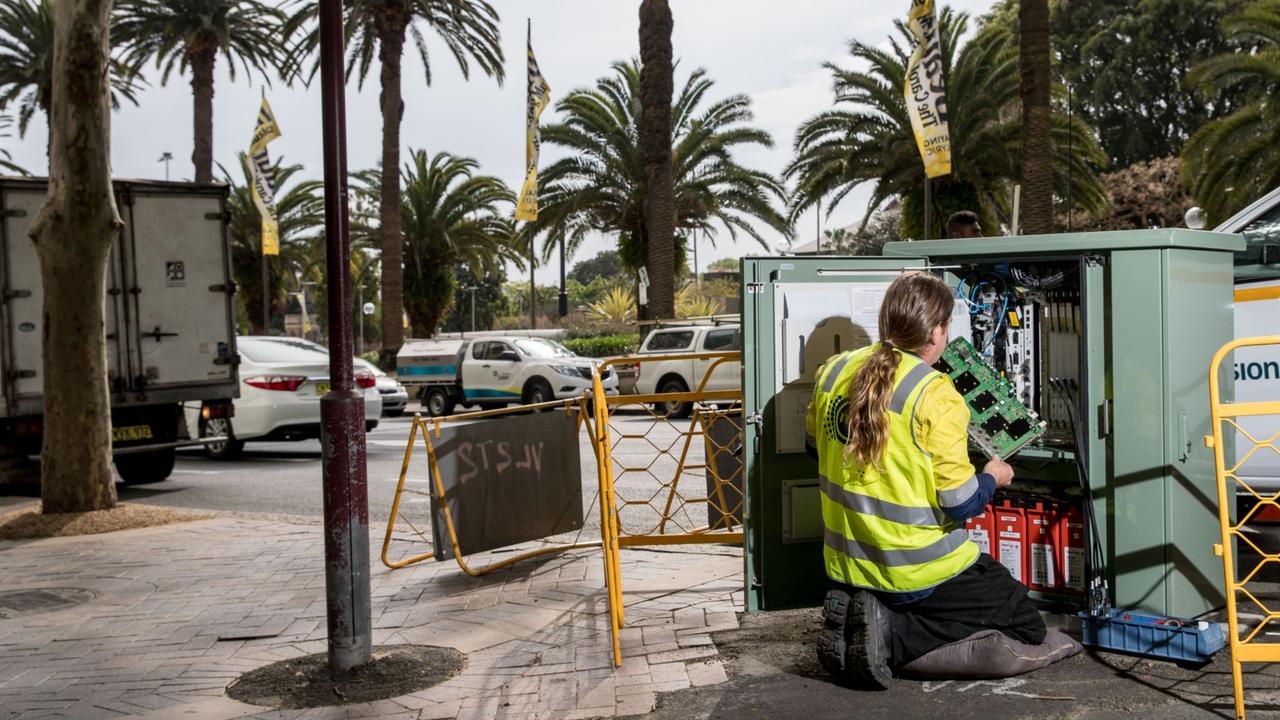Virus plays havoc with gaming
Australia’s gaming community has been forced to weather the storm of coronavirus.

THE COVID-19 pandemic has played havoc with the global gaming industry, but the Australian sector appears to be weathering the storm better than might be expected.
That’s at least for now.
The Australian Interactive Games and Entertainment Association (IGEA), the peak body for the Australian video games creation and publishing industry, recently surveyed the impact of the pandemic on the Australian games development industry.
Of the 49 respondents, 84 per cent said they were not planning any staff cutbacks or redundancies, which is reassuring given the relatively small size of the local industry compared to its overseas counterparts.
The IGEA report said many Australian developers and publishers had noticed an increase in demand for their existing games – not just locally, but from overseas too, with 44 per cent reporting stable or increased sales revenue.
IGEA CEO Ron Curry said the latest survey findings were a reminder that while the Australian gaming industry may be more resilient than many, it had not been immune to COVID-19.
It said gaming technology should not be ignored when implementing arts, creative and screen stimulus measures.
“There is a strong opportunity for video games to support Australia in exporting itself out of this crisis, as already 83 per cent of the industry’s income is generated overseas,” he said.
“This is not a time for complacency in making Australia competitive in global games content.
“Creating jobs during this pandemic-induced period of vast economic destruction is worthy of speedy government consideration for further assistance during this time of crisis.”

With the equivalent of about 1275 full-time employees, the Australian games and development sector is not large, especially compared to its North American and European counterparts; French-based Ubisoft, for example, has more than 40 development studios and offices globally, including an office in Sydney.
Despite the relatively small local industry, Australia punches above its weight with local developers producing hugely successful games including Untitled Goose Game, Risk: Global Domination and Fruit Ninja.
Big Ant Studios, based in Melbourne, are one of Australia’s most successful developers and responsible for popular sports games including AO Tennis 2 and Big Bash Boom.
CEO Ross Symons said while game development was challenging even under normal circumstances, he thought local developers were in a relatively healthy position overall, especially as game sales were increasing. He said this was unsurprising, given they were something people could do at home and with their family.
“You only need to look at the supply shortage for the Nintendo Switch console, for example, as proof that there’s a real and broad appetite for video games right now,” he said.
“The falling Australian dollar has also been a benefit to the Australian games industry – with a big part of developer’s incomes coming in US dollars, global sales are worth more now than they were before the crisis.
“Added to that, a lot of the current sales are from the digital storefronts, which puts an extra 50 per cent directly into the developer’s pockets, relative to a retail sale.”
Mr Symons said Big Ant had experienced an increase in demand for their titles, due to them specialising in sports games.
“With real world sports unable to continue, and people being cooped up indoors missing their favourite sports, they have turned to our games to fill that void to an extent,” he said.
“We’ve seen a substantial influx of new players enjoying AO Tennis 2 and Cricket 19 in particular.”
He cautioned, however, that while the local games industry might be coping, the broader creative industry sector was suffering badly despite its critical role in helping people keep their spirits up during the pandemic and lockdowns.
“Could you imagine being locked down without books, music or film?” he asked.
“While Big Ant hires only full-time staff, a large percentage of the broader creative industries rely on contract work. Sadly, these creative industries have been one of the hardest-hit sectors in our economy.
“I feel very deeply for those in the arts that are struggling and not able to continue their craft … it would have been ideal to see some support for these contractors come via the Federal Government’s COVID-19 stimulus packages.”



To join the conversation, please log in. Don't have an account? Register
Join the conversation, you are commenting as Logout